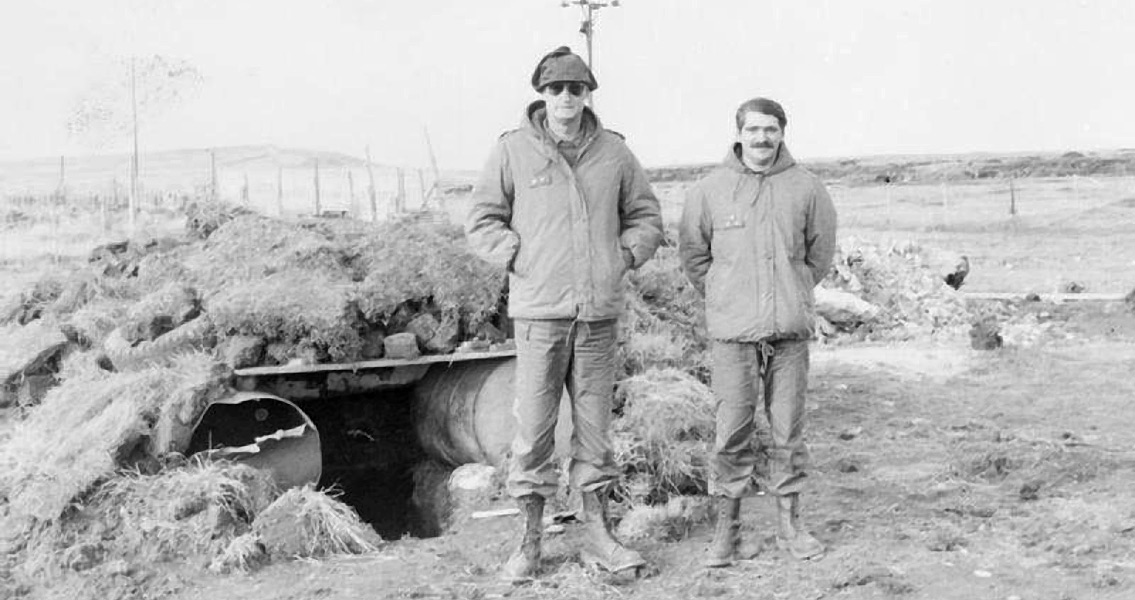<![CDATA[On the 2nd April, 1982, Argentine forces launched an invasion of the Falkland Islands, triggering a war between Great Britain and Argentina. The bitter dispute was the most violent outburst in a long held rivalry between the two countries over possession of the South Atlantic Islands. Frustrated with the repeated failure to gain control of the islands through diplomatic means, leader of the Argentine military junta, Lieut. Gen. Leopoldo Galtieri, gave up on attempts at negotiation with Britain in early 1982. It is unclear exactly when the decision to invade was made, but it seems the Argentine military had been secretly preparing an invasion task force in advance. The time frame for the invasion was cut short on 19th March, 1982, when Argentine salvage workers on the British controlled South Georgia Island, roughly 300km south of the Falklands, launched an uprising and declared the island an Argentine territory. Anticipating that the uprising could attract a bigger British military presence in the South Atlantic, the invasion of the Falklands was brought forward to 2nd April. Argentine forces quickly overcame the small British force stationed at Port Stanley, following orders not to inflict any British casualties despite losses of their own. By late April, over 10,000 Argentine soldiers were stationed on the Falkland Islands. Britain, supported by the UN, opted to fight the Argentine invasion and swiftly declared a 200 mile exclusion zone around the islands. A task force of over 28,000 troops and more than a 100 battleships was deployed from the UK, embarking on the 8,000 mile journey to the Falkland Islands. South Georgia was quickly retaken by the British forces on the 25th April, with an attack on the Falkland Islands themselves beginning with the RAF's aerial bombardment of Port Stanley on the 1st May. The intensity of the fighting escalated dramatically over the following days, with a series of major naval battles around the islands. On 2nd May, the Argentine cruiser, General Belgrano, was sunk with the loss of 368 crew. On 4th May, the British destroyer, HMS Sheffield, was struck by an exocet missile, resulting in 20 fatalities. On 21st May, land battles started on the Falkland Islands when British troops landed at San Carlos, on East Falkland. Although the Argentine troops on the island outnumbered the British, they were poorly trained conscripts, supplied with inadequate food and equipment. British forces achieved a series of victories and gradually progressed towards Port Stanley, establishing a strong foothold on the East Island. On 14th June, with British troops approaching, the Argentine garrison at Port Stanley surrendered, effectively bringing the fighting to an end. In all, the British forces suffered the loss of five ships and 256 lives in the brief but ferocious conflict. The Argentine military lost 750 lives and one cruiser. Politically, the conflict also had ramifications. Historians often argue that Galtieri's decision to resort to military action was prompted by growing popular dissatisfaction directed at the junta in Argentina. He hoped that invading the Falklands would prove a cause capable of uniting the Argentine people through patriotic feeling, bolstering support for the Junta government. Tellingly, in 1983, the junta was toppled from power and replaced with a civilian government. The failed campaign in the Falklands did not necessarily trigger this uprising, but victory could have prevented or delayed it. In Britain, Margaret Thatcher's Conservative party enjoyed a surge in popularity following the victory, and won a landslide victory in the 1983 General Election. Thatcher's first term as Prime Minister had been difficult, marked by controversial policies, economic recession and growing unemployment. Victory in the Falklands War undoubtedly helped boost her popularity in the run up to the crucial 1983 election. Claims to the Falkland Islands remain a thorny issue which is still a cause of conflict, debate and dispute between Britain and Argentina. Discussing the respective claims to the Islands is a complicated task which will always lead to fierce controversy and impassioned argument. The anniversary of the invasion that started the Falklands War however, is a potent reminder of the tragic consequences when diplomacy fails. ]]>
Argentina Invades the Falklands
